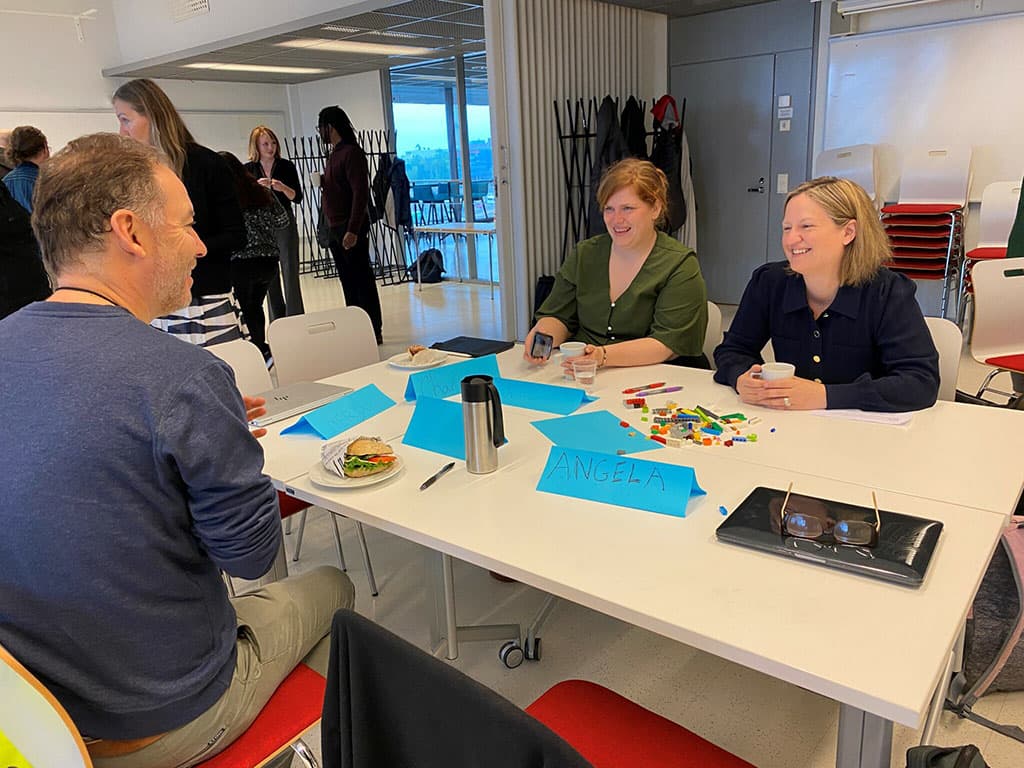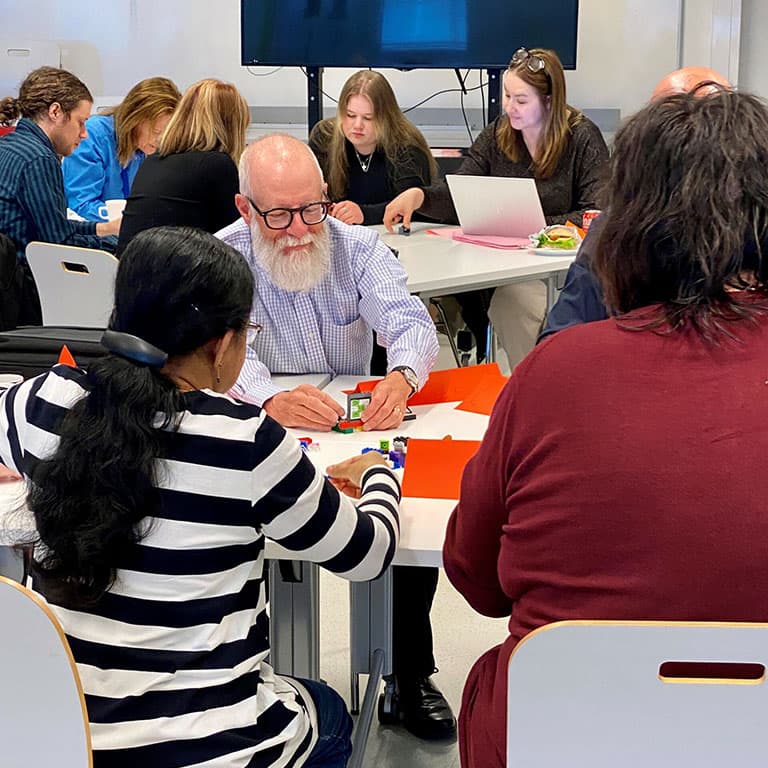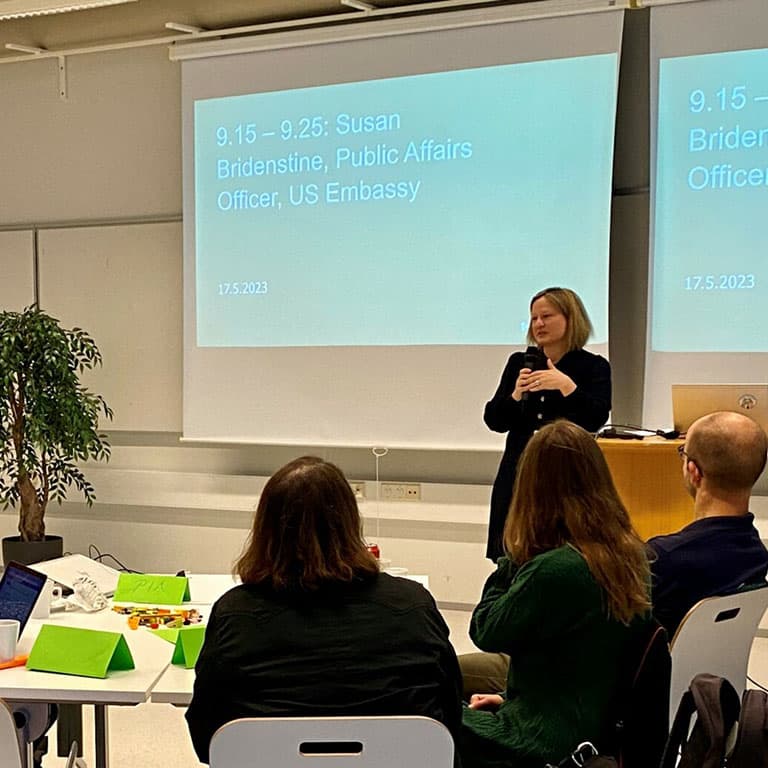What Is a Professional? Being Your Authentic Self in the Workplace
Andrea Copeland
The “What is a Professional?” campaign at Indiana University seeks to get our community members to challenge their established notions about what a professional is, what they look like, sound like, and do. Ultimately, we want our diverse students to feel connected to their personal strengths and to find ways to describe and share those strengths with potential employers. To date, this campaign has included several activities, among which is a Power Cards card project, which features a photo of the individual student and keywords describing their authentic powers. This presentation will share the motivation for the campaign and results from the Power Cards pilot.
Harassment Contact Person Activities in Haaga-Helia Student Organizations and Student Union Helga
Anna Laurila
"Harassment Contact Person Activities in Haaga-Helia Student Organizations and Student Union Helga" will open the discussion about the responsibility of the whole community for more inclusivity and making of the safe space. Finnish student culture is very colorful and part of the university experience, but we face different kinds of situations that make students feel uncomfortable or we find some situations being unequal. In this section you will get informed on what student union and different student organizations do to stop harassment and make the culture more equal and sensitive here in Haaga-Helia.
New Approaches to Online Student Engagement
Zeb Wood and Amira Malcom
'Campus life' evolves with each student cohort. Faculty want their classrooms and spaces full of students, projects, and purpose. Students seek to enjoy laughs, memes, and a place for connections. We take a look through our Media Arts and Science program at students before, during, and after COVID, within online spaces where our students find comfort in a next-gen community not-so-far-away or different from the 'campus life' we once knew.
Haaga-Helia’s GEP – How to Involve Students in Designing a Gender Equality Plan
Merja Drake
And then attendees will "grade" the other proposals. At the end of the session, the ranking will be announced and discussed. This is an exercise in collaboration.
What Can You Say? DEI in Your Language
Inara Shakirova and William Helling
Languages have always evolved in order to be able to express the changing attitudes of their speakers. However, perhaps never before have languages had to adjust so quickly to address growing concerns in diversity and inclusion. From our pronouns to our gender-specific forms of professions, today's speakers need to be aware of potential microaggressions in academic work, the job-search context, and even in everyday communications. This presentation touches upon the topic of what you can and cannot say in English, Finnish, and other languages that struggle with modern needs.
What Are Elements of a Psychologically Safe Learning Environment? How Can We Enhance Them?
Crister Nyberg
The prerequisite for learning is the fulfilment of certain basic needs. A learning environment should therefore promote the fulfilment of these needs. Each of us brings our own individual experiences to the community, where a sense of psychological safety experienced together is formed. Thus, we are each doing our part to build a safe learning environment. What are the essential elements and how can we promote them?
The Development Process for the Policies of a Safer Space in Higher Education
Ruut Kaukinen
The policies of a safer space are aiming to reach a more equal, respectful, and open learning environment. When equity and non-discrimination are consciously held as principles, commitment to constructive dialogue is facilitated, as is intervention in possible discrimination situations. In the latest non-discrimination planning process of Haaga-Helia University of Applied Sciences, the need for the systematic construction of a safer learning environment and the development of practices for intervening in discrimination, bullying, and harassment have been identified. In this interactive presentation, experiences from the process of inclusively building the policies of a safer space within the university community are shared and the principles of a safer space are collectively explored as pedagogical practice.
The Virtual ‘Campus’: Voices of Online Students in Campus Climate Surveys
Margaret Breidenbaugh
Campus climate surveys are a standard measure of how satisfied students are with their experiences on physical campuses, but such surveys don’t always do a good job of determining what college is like for online students. In this session, we will introduce recent scholarship on online student representation in campus climate surveys and how these surveys can better represent an institution's online community. Note: This session deals in part with themes of harassment and violence toward students.
Recommendations on How to Promote Diversity, Equity, and Inclusion at HEI
Leena Alanko
The KOTAMO project examined how equality, non-discrimination and diversity among staff members can be promoted in Finnish higher education institutions. In her presentation Leena Alanko shares the key findings from the study and shares a few examples of the recommendations for higher education institutions, funding organisations and national operators to help them address problems related to gender equality, non-discrimination and diversity.
Promoting Equality and Preventing Discrimination – the Work of the Non-Discrimination Ombudsman
Matti Jutila
Equal access to education is a human right protected by international human rights conventions and domestic legislation. The task of the Non-Discrimination Ombudsman is to promote equality and to prevent and tackle discrimination. In my talk I will present the work of the Ombudsman in the field of education.
Facilitated Group discussions
Attendees are split into three group types for a final group discussion. Three concurrent 60-minute discussions for students, teachers, staff/administrators. Facilitators will be members of the DEI committees who belong in that group.



